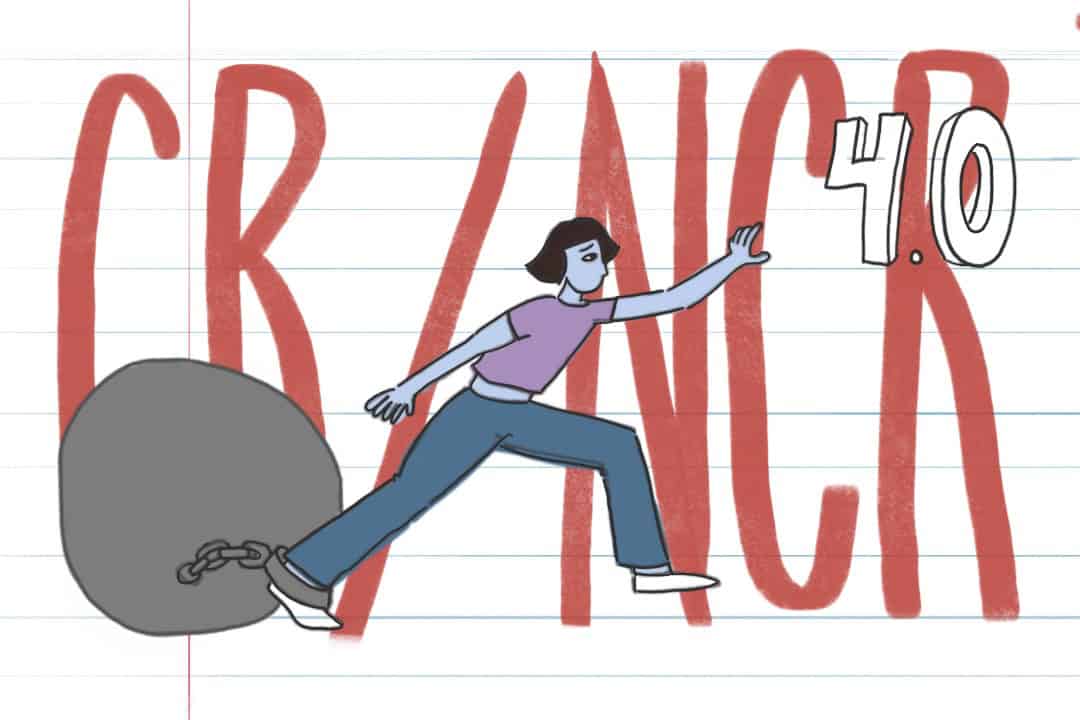In August, U of T’s student unions launched a tri-campus campaign to change the university’s Credit/No Credit (CR/NCR) policy.
The University of Toronto Students’ Union (UTSU), the University of Toronto Mississauga Students’ Union (UTMSU), the Scarborough Campus Students’ Union, the Arts and Science Students’ Union (ASSU), and the Association of Part-time Undergraduate Students are proposing to extend the CR/NCR deadline until final grades are released and to allow students to apply the policy to at least 1.0 credit of their program requirements.
What is the CR/NCR policy?
CR/NCR allows students across the three campuses to complete a distribution requirement or elective course without affecting their GPA.
In a nutshell, a student can set a course’s status to CR/NCR on ACORN before the final exam period, which begins on December 3 for the fall 2024 term. Once the course’s status is changed, the student’s final grade for the course will not appear on their transcript. Meaning, the grade would not impact the final calculations of the student’s GPA. Instead, the transcript will show a ‘credit’ notation if the student received at least 50 per cent as a final grade for the course or a ‘no credit’ if they have not.
Currently, a student may select up to 2.0 credits for CR/NCR. They can not apply or remove the status after the exam period starts, and CR/NCR can’t be used to satisfy program requirements.
Prior policy changes
U of T student unions have lobbied for changes in the CR/NCR policy since the COVID-19 pandemic.
In 2021, the ASSU issued a proposal for the Faculty of Arts & Science (FAS). The union suggested that the university extend the CR/NCR deadline until after term grades are released and allow the policy to be applied to program requirements, not just elective courses. Other unions are now lobbying for the same changes.
FAS agreed to permanently extend the CR/NCR deadline to no later than the last day of classes since the fall semester of 2021, but declined the union’s proposal to apply the policy to program requirements.
The union’s current campaign
In an interview with The Varsity, UTSU’s Vice President (VP) Public & University Affairs Avreet Jagdev said that the unions believe that “students should have access to complete and accurate information about their performance in courses so that they can make informed decisions regarding the CR/NCR option.”
According to Jagdev, the unions have already conducted outreach to students across all three campuses and are continuing to collect responses through a survey they created. The survey asked students questions about how they’ve used the CR/NCR policy and how it has affected their mental health.
UTMSU’s VP University Affairs Sidra Ahsan added that extending the CR/NCR policy has been a persistent request from the student community and that it’s an issue that affects many students’ mental health and academic careers.
“The university has restated their emphasis on promoting mental wellbeing amongst students many times, yet they have left this issue unaddressed over the years,” she said.
The unions plan to use the survey’s results to advocate for an extension of the policy in the future.
In a statement to The Varsity, a U of T spokesperson noted that the university “welcomes student input to improve educational outcomes.”
Students’ response to proposed changes
In interviews with The Varsity, many students expressed their support for the unions’ efforts to extend the CR/NCR deadline.
Tiana Manias, a fourth-year forensic chemistry student, said she believes that “[students] should be able to decide [on whether] to CR/NCR [a course] after reviewing [their] final mark.”
“My fear for this change would be students taking advantage of this and [applying CR/NCR to] crucial courses [where] they need to understand the topic they are studying,” said Manias.
She continued, “If you get a mark that would increase your final grade you should be able to keep it.”
Yet, some students disagreed with the unions’ proposal to allow using CR/NCR on program requirements.
Fourth-year physics student Logan Blaskie said that this change could also harm students’ applications for graduate school.
“Inside the area of physics, there are several courses that professors at other universities have told me are tantamount to your GPA when being considered as a potential graduate student,” he said. “[The proposed change] could presumably lead to individuals unknowingly [using] CR/NCR [on] some of these important courses… and potentially hurting graduate school applications.”
Fourth-year ethics, society, and law student Valerie Yao opined about the flaws in U of T’s current CR/NCR policy for The Varsity in 2023.
In an email to The Varsity, Yao expressed her support for the student unions’ initiative to make 1.0 credits of program requirements eligible for a CR/NCR notation.
“The university thinks that not allowing [a] CR/NCR on courses that count towards program requirements holds up its academic standards, but this concern is not so relevant,” she said. “U of T’s courses are hard enough already and just because students CR/NCR 1.0 credit for their program cannot show that the student didn’t finish the program satisfactorily.”
Disclosure: Valerie Yao is a Varsity Contributor who has written an opinion article on the CR/NCR policy in Vol. 143.



No comments to display.